Read our Detroit: Become Human review exploring the game’s story, characters, replay value and more. Discover why this cinematic sci-fi title still stands out among science fiction games in 2025.
Detroit: Become Human- when this title was dropped on 25th May 2018 by Quantic Dream, it was obvious that the studio behind Heavy Rain and Beyond Two Souls was trying to create its most ambitious project yet. Originally released for the Playstation 4, the game was eventually ported for PC as well in 2019. The studio had already built its reputation with its earlier two titles, but it was through this game that they marked themselves as a leader in cinematic games.
From a first glance, Detroit Become Human might seem like one of those games where you can just mash a few buttons and sit back and watch. But as the game moves forward, you see that it is a lot more than that. Your decisions are extremely important in this game, and one simple choice between yes or no can alter everything. At the same time, the game also makes you feel like the future of humanity as well as A.I. is in your heads- on your decision to say “sorry” or throw back a punch.
Story and Setting in Detroit: Become Human
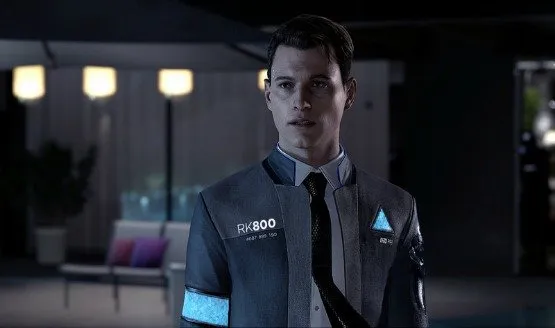
The story and setting in Detroit Become Human is set in a near-future version of Detroit, in the year 2038, where androids can be seen everywhere, in all aspects of life. They are serving as workers, caregivers, companions for the ailing and the elderly, and even aiding law enforcement. However, underneath all these lies a world of inequality, injustice and unrest. The central theme might seem simple and it is something that you might have seen or heard of numerous times: What happens if/when machines begin to feel? And if they do, should they have the right to be treated as property or as people? Despite sounding simple, the way this game handles the subject is what makes Detroit Become Human one of the best cinematic games and science fiction games ever.
As we continue throughout the game, we see how androids begin showing signs of emotion, which is labelled as “deviancy”. As for humans, they continue acting as they do- sometimes predictable, sometimes terrifying, and sometimes with care and love. The brilliance of the game is not just the science fiction premise, but the way it mirrors real-world problems and struggles like civil rights, oppression and corporate greed.
The Detroit Become Human chapters, as the game unfolds, gives you multiple choices and paths. The game also gives you a roadmap of your progress, along with giving hints of other other possibilities you could have chosen. Every decision feels like it matters, even when it might seem minor, like shaking someone’s hand or staying silent. Detroit Become Human also has countless endings, from best to worst. The total number of endings are confirmed to be over 80.
This is why it is always ensured that two playthroughs of the game will never feel the same. I’ve personally played the game twice with a gap of one year in between, and at times, it felt like I was playing a completely different game.
While the story is powerful, not everyone loved how it handled its social allegories. The parallels to civil rights movements in Detroit Become Human are so direct that some players felt like the game was trying to give a lecture at times. (What’s ironic is that the creators deny it!) This doesn’t really ruin the experience, but subtlety clearly wasn’t at the top of Quantic Dream’s priorities here.
The Detroit Become Human Characters: The Heart of the Story
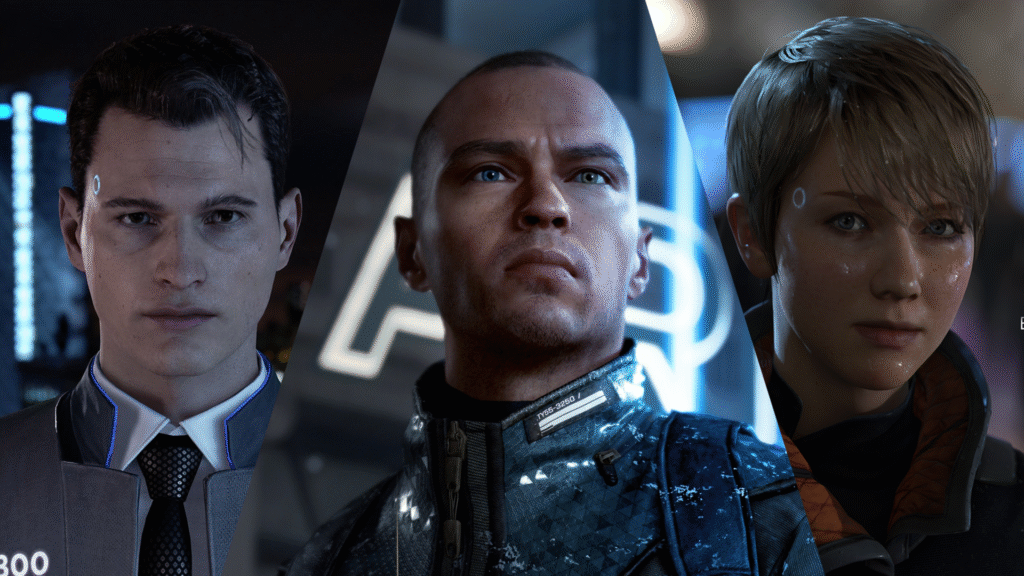
Detroit: Become Human lets you play as three different and unique protagonists: all of them androids- Kara, Markus and Connor. Each of them offers a different lens on the struggles of androids, and together they form a part of a story that feels quite cohesive.
- Kara begins as a household caretaker and babysitter who is caring for a young girl with a toxic and drunk father. Her journey as she begins and learns to care for Kara, explores themes of survival, family and protection and it can be the most emotional story out of the three Detroit become human characters.
- Markus starts as a caretaker but after getting into a fight with the son of his owner, he becomes the reluctant leader of a revolution. Among the Detroit Become Human characters, what makes Markus interesting because he often finds himself in situations which can feel like they belong in our history books.
- Connor is the star detective android who has been tasked with hunting the deviants and crushing the “Android” revolution. His unique partnership with Hank, a grieving and depressed cop who despises androids, delivers some of the best moments in the game. Watching their story evolve from mutual disdain to something like a father-son type of relationship gives us such an emotional impact that even many movies and novels are not able to create.
One minor drawback however is that early on, especially while playing as Markus and Kara, the game can kind of bore you, due to its slow pacing. While Connor’s story is interesting right from the start, it takes some time for us to connect with Markus and Kara and their journeys. Some players might even bounce off before the story really opens up, which is a shame because the payoff later is worth the patience.
However, it is still no exaggeration to say that the Detroit Become Human characters make the entire experience. Even if we take away the sci-fi setting and imagine these people as normal humans, these are characters that you want to root for. Connor’s android logic colliding with Hank’s alcohol-soaked pain and anger probably makes them the best buddy-cop duo in the history of gaming.
Gameplay and Mechanics
Now this is where things get divisive. If you are looking for deep combat mechanics, skill trees, or hours of grinding, this is not the game for you. Detroit: Become Human is a story-based game, where the plot is built on exploration, dialogue choices and quick-time events. The controls are extremely simple, which is why whether you are a veteran gamer or a newcomer, it doesn’t matter- you can easily jump in!
Another drawback however is the fixed camera system. In an era where most games give players full control over the camera with their mouse or joystic, Detroit: Become Human often locks you into preset angles. While this can heighten the cinematic vibe, it occasionally feels clunky, especially when you’re trying to explore a room and the camera stubbornly refuses to give you the angle you want! While it might seem like a small issue, it doesn’t just break immersion for players at times, but it can feel quite frustrating as well.
Some critics also feel that Quantic Dream is making “movies with button prompts” rather than games. It is a valid argument but Detroit Become Human is much more than that. Also, when the “movie” is this good, does it really matter? Detroit Become Human’s minimal gameplay works because the focus in the story. The tension doesn’t come from your ability to aim a weapon, or the fear of being attacked suddenly by enemies, but wondering if one wrong sentence or decision can doom the entire human race.
When you play the game remembering that it not a traditional title, but it is one of the choice-based cinematic games, the mechanics are more than enough, despite minor flaws. They are enough to immerse you into the story without overwhelming you unnecessarily.
Branching Paths and Replay Value
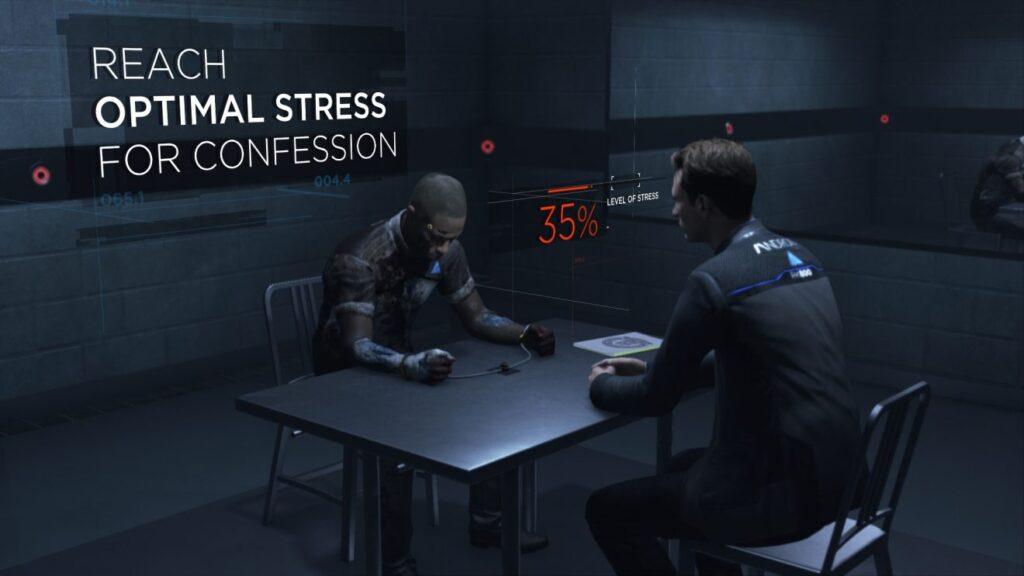
The biggest selling point of Detroit Become Human is its branching storyline. There are many games with dialogue choices but eventually you find out that your choices don’t really impact the ending of the game. The Detroit Become Human chapters however offer you countless possibilities, and game’s flowchart system also shows us what paths we didn’t take but could have taken. This is what makes us want to play the game again differently.
What if Markus tried diplomacy instead of force? What if Kara made a different choice in the most crucial moment? What if Connor had investigated the crime scene in more detail? The replay value is enormous when you consider the endless possibilities.
Presentation and Atmosphere
One thing that has aged like fine wine and that is the game’s presentation. Detroit: Become Human still looks quite fantastic in 2025- 7 years after its release. The motion capture is also one of the best in gaming. A lot of effort has also been put in the attention to detail in facial expressions, and along with the superb voice acting, it makes every emotional beat land harder.
The city of Detroit itself feels quite alive, whether we talk about its neon-lit streets to the small, grimy apartments where humans and androids clash. The soundtrack is also quite good, and the game’s user interface is quite polished as well. This is what makes it one of the top cinematic games of the lest decade.
Science Fiction Games and Detroit’s Place in the Genre
When it comes to science fiction games, Detroit: Become Human definitely stands out for its philosophical ambition. No, it is not just another tale of robots rising against humans. It digs into deeper questions: Are androids truly conscious, or is their rebellion engineered? Do they deserve rights, or are they nothing more than just sophisticated tools? Some players and critics argue that the game oversimplifies complex issues, but that’s also part of its charm.
In terms of legacy, this game is Quantic Dream’s crowning achievement. It became the studio’s best-selling title, surpassing ten million copies sold worldwide by 2024. Its influence is visible in how gamers and developers alike discuss narrative design in cinematic games. Other studios have tried to replicate its branching systems, but few have matched the sheer scale of the choices and outcomes in Detroit become human chapters.
Simply put, Detroit: Become Human has managed to carve out a permanent spot in the conversation about narrative design in games. Whether you love it or roll your eyes at its melodrama, it’s impossible to deny its impact.
Final Verdict
So, is Detroit: Become Human still worth playing in 2025? Absolutely. It’s not perfect; the reliance on QTEs won’t impress everyone, and its social allegories can feel a bit like being hit over the head with a textbook. But the game presents us with a beautiful and emotional storytelling, offers immense replayability, and unforgettable characters, and this is what make it stand tall among cinematic games.
If you’ve ever wanted a story that challenges your morality, makes you think and leaves you wondering whether you made the right call, then Detroit: Become Human is more than just a game- it’s an experience. And one worth revisiting again and again.
Rating: 8.5 out of 10
You can also check out these 7 games like Detroit Become Human.
If you love playing horror games, check out what players are saying about Silent Hill f, one of the most anticipated horror games of 2025.

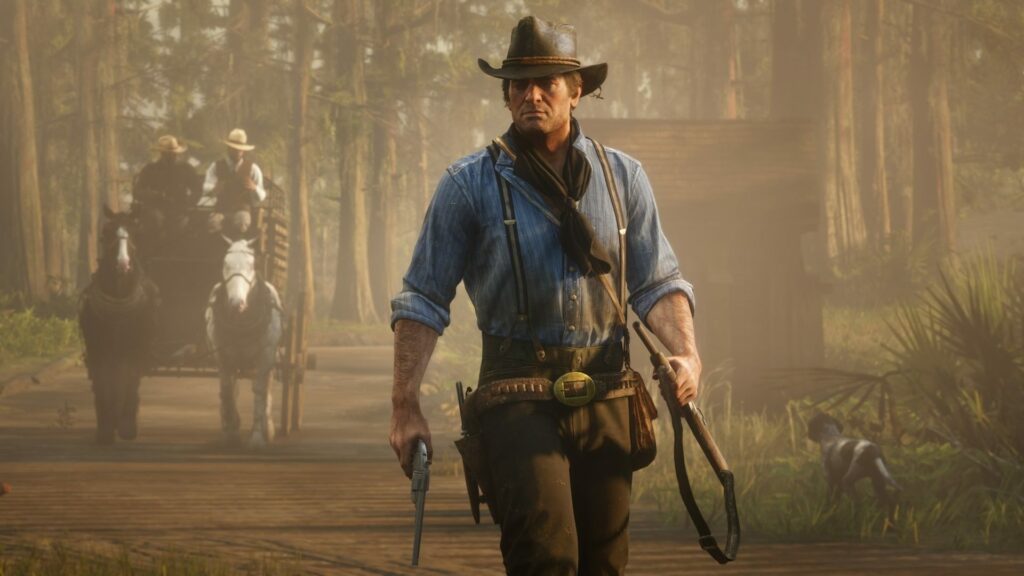
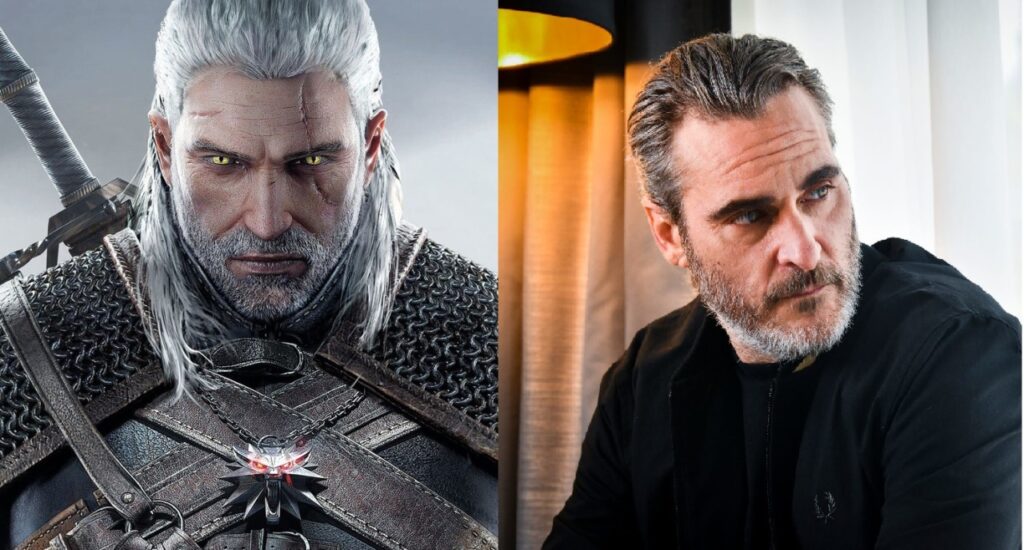
Pingback: Nintendo Switch 2 Upcoming Games Revealed in September 2025 Direct - Cinematic Gamers
Pingback: Is Claws of Awaji Worth It? Assassin’s Creed DLC Gets Mixed Reaction - Cinematic Gamers